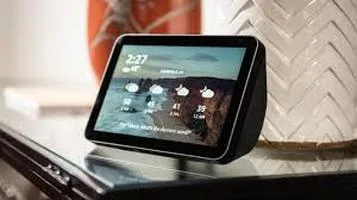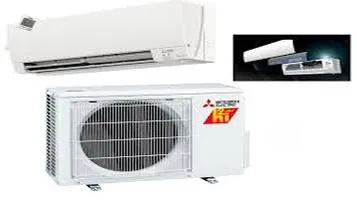Review about Best Smart Home Appliances
Best Smart Home Appliances are cutting-edge devices designed to enhance convenience, efficiency, and security in your living space. These appliances are equipped with advanced technology that allows for seamless integration into your daily routine. From smart thermostats that optimize energy usage and reduce utility bills, to intelligent refrigerators that manage your grocery list and suggest recipes, these devices make life easier and more enjoyable. Voice-controlled assistants like Amazon Alexa or Google Assistant can synchronize with smart lights, locks, and security cameras, providing hands-free control and monitoring. Additionally, smart vacuum cleaners and washing machines offer automated cleaning solutions, saving time and effort. Best Smart Home Appliances are perfect for those looking to upgrade their home with the latest innovations for a more connected and efficient lifestyle.

Smart Refrigerators
One of the standout products in the realm of smart home appliances is the smart refrigerator. Brands like Samsung and LG have pioneered this market, offering fridges equipped with touchscreens, internal cameras, and voice assistants. For example, the Samsung Family Hub Refrigerator allows you to see what's inside without opening the door, thanks to internal cameras accessible via a mobile app. It also lets you create shopping lists, order groceries online, and even play music or watch TV shows on its built-in screen.
Pros:
1. Convenience: Features like internal cameras and touchscreen interfaces make meal planning and grocery shopping a breeze.
2. Energy Efficiency: Many smart fridges come with energy-saving modes and alerts for when the door is left open.
3. Multi-functionality: Acts as a central hub for family communication and entertainment.
Cons:
1. Cost: These refrigerators can be significantly more expensive than traditional models.
2. Complexity: The plethora of features can be overwhelming and may require a learning curve.
Smart Thermostats
Smart thermostats, such as the Nest Learning Thermostat and the Ecobee SmartThermostat, are revolutionizing home climate control. These devices learn your schedule and preferences over time, automatically adjusting the temperature to optimize comfort and energy efficiency. They can be controlled remotely via smartphone apps, allowing you to adjust settings while you're away from home.
Pros:
1. Energy Savings: Adaptive learning and remote control capabilities can lead to significant reductions in energy usage.
2. User-Friendly: Easy to install and simple to use, with intuitive mobile apps.
3. Integration: Compatible with other smart home systems like Google Home and Amazon Alexa.
Cons:
1. Initial Investment: Higher upfront cost compared to traditional thermostats.
2. Privacy Concerns: Data collection on your habits and preferences may be a concern for some users.
Smart Washing Machines and Dryers
Laundry has never been more convenient, thanks to smart washing machines and dryers from brands like LG and Whirlpool. These appliances offer features such as remote start, cycle notifications, and even the ability to diagnose issues via a smartphone app. The LG SmartThinQ Washer, for example, allows you to start and stop cycles remotely and receive alerts when your laundry is done.
Pros:
1. Convenience: Remote control and notifications make laundry less of a chore.
2. Efficiency: Smart diagnostics can help identify issues before they become major problems.
3. Customization: Advanced settings allow for highly customizable wash and dry cycles.
Cons:
1. Price: Higher cost compared to non-smart models.
2. Complexity: May require a learning curve to fully utilize all features.
Smart Vacuum Cleaners
Robotic vacuum cleaners like the iRobot Roomba and the Neato Botvac have become household staples for those looking to automate their cleaning routines. These devices can be programmed to clean on a schedule, navigate around obstacles, and even return to their charging stations when the battery is low.
Pros:
1. Time-Saving: Automates one of the most tedious household chores.
2. Efficiency: Advanced navigation systems ensure thorough cleaning.
3. Convenience: Can be controlled remotely and integrated with other smart home systems.
Cons:
1. Cost: Generally more expensive than traditional vacuum cleaners.
2. Maintenance: Requires regular emptying and occasional maintenance to ensure optimal performance.
Smart Lighting
Smart lighting systems, such as Philips Hue and LIFX, offer unprecedented control over your home’s lighting. These systems allow you to change the color and intensity of your lights via a smartphone app or voice commands. They can also be programmed to turn on and off at specific times, enhancing both convenience and security.
Pros:
1. Versatility: Wide range of colors and settings to suit any mood or occasion.
2. Energy Efficiency: LED technology and programmable settings can reduce energy consumption.
3. Integration: Works seamlessly with other smart home devices and platforms.
Cons:
1. Cost: Initial setup can be expensive, especially if retrofitting an entire home.
2. Compatibility: Some systems may not work with existing fixtures or may require additional hubs.
Conclusion
Smart home appliances are transforming the way we live, bringing convenience, efficiency, and even a bit of fun into our daily routines. While the initial investment can be high, the long-term benefits often justify the cost. From smart refrigerators that manage your groceries to robotic vacuum cleaners that keep your floors spotless, these devices offer a glimpse into the future of home living. However, it's essential to consider factors like cost, complexity, and potential privacy concerns when making a decision. Overall, smart home appliances represent a significant step forward in making our homes more connected, efficient, and enjoyable.






